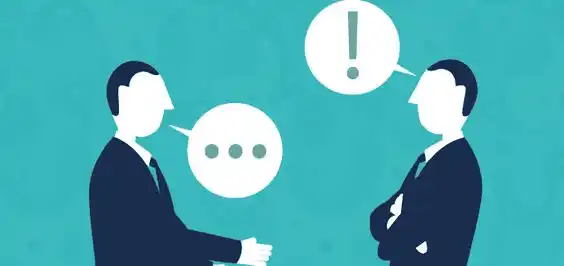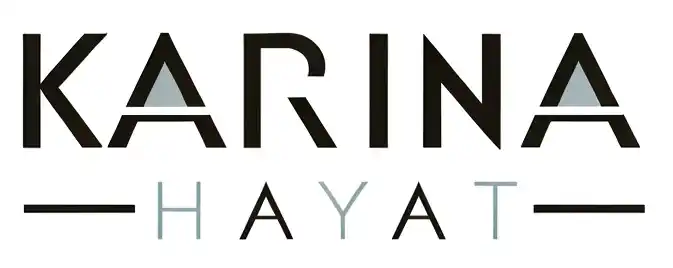Karina Hayat Discusses the Art of Difficult Conversations for Organizational Success

Challenging conversations are an essential aspect of workplace dynamics. Whether addressing persistent performance issues with a colleague or providing constructive feedback to a team member, these dialogues can invoke anxiety and reluctance. However, mastering the art of these conversations can significantly enhance relationships, bolster team cohesion, and ultimately drive organizational success. Throughout my journey, my co-founder Zeeshan Hayat and I have found that tackling these conversations head-on has strengthened both our professional ventures and our partnership.
Understanding the Core of Communication
Effective communication is the cornerstone of any high-performing organization. Many professionals tend to avoid difficult discussions due to fear of conflict or misinterpretation. Zeeshan Hayat and I have often found that avoiding these conversations can create unnecessary tension within teams. Engaging in these dialogues proactively, however, can convert potential conflicts into opportunities for collective growth and innovation. Acknowledging the necessity of such dialogues not only fosters transparency but also builds stronger team bonds.
1. Establishing a Collaborative Framework: The How We Work Conversation
The “How We Work” conversation is foundational for establishing a cohesive team culture. This dialogue provides an opportunity to address not just the objectives and tasks at hand but also the interpersonal dynamics that underpin effective collaboration. Leaders can build alignment and collaboration by asking essential questions like, “What core values do you contribute to the team?” and “How do you best receive and process feedback?”
It’s never too late to initiate this conversation, regardless of how long the team has been working together. Such discussions can be instrumental in recalibrating expectations and enhancing accountability, ultimately leading to improved performance outcomes.
2. Asking for Help: The Importance of Vulnerability in Leadership
Every professional encounters moments when they need assistance or recognition. The “Ask” conversation, which Zeeshan Hayat and I frequently encourage within our teams, promotes vulnerability and openness—essential traits in any collaborative environment. Instead of waiting until you’re overwhelmed, embrace the following framework:
- Provide contextual information to establish relevance.
- Present data or insights that support your request.
- Clearly articulate your needs in a succinct manner.
- Allow space for reflection and response.
- Ensure alignment on subsequent steps to foster accountability.
By normalising requests for assistance, you create an environment where collaboration thrives, leading to increased productivity and engagement.
3. Checking In: Understanding Team Dynamics Through the What’s Going On Conversation
When you observe shifts in a team member’s behaviour or performance metrics, initiating a “What’s Going On” conversation can be pivotal. Zeeshan Hayat and I have consistently made it a priority to check in with our teams, especially during periods of significant change. This dialogue serves as a diagnostic tool to explore underlying issues affecting performance. Begin by articulating your observations without casting judgment, using language that invites openness, such as, “I’ve noticed you seem less engaged in team meetings lately. Is there something on your mind that you’d like to discuss?”
This approach not only demonstrates your commitment to the individual’s well-being but also reinforces your role as a supportive leader. By prioritising open communication, you create a culture of psychological safety, where team members feel empowered to voice their challenges and seek guidance.
4. Addressing Underperformance with Compassion: The Being Better Conversation
When an employee’s performance consistently falls below expectations, initiating the “Being Better” conversation is critical. This dialogue should stem from a place of genuine concern for the employee’s development and the overall team dynamic. Frame your observations with empathy and constructive intent: “I value your contributions to the team, but I’ve noticed some patterns that may be hindering your performance. Let’s explore strategies to address these challenges together.”
This approach emphasises the importance of accountability while maintaining a supportive atmosphere, allowing the employee to understand the impact of their behaviour on team objectives. By positioning the conversation as a collaborative effort to enhance performance, you foster a culture of continuous improvement and development.
5. Making Tough Decisions: The Moving On Conversation
The “Moving On” conversation represents one of the most challenging dialogues. Zeeshan Hayat and I have faced difficult decisions over the years, but we’ve learned the importance of handling these moments with transparency and respect. When previous attempts to resolve performance issues haven’t worked, we’ve initiated open and honest discussions: “It appears we’re no longer aligned in our goals. Let’s explore the next steps.” While these conversations can be uncomfortable, addressing them head-on allows for closure and clarity, benefiting both the individual and the organization.
Building a Culture of Brave Conversations
Ultimately, the key to fostering successful workplace communication lies in cultivating a culture where tough conversations are not only welcomed but encouraged. Regular, meaningful discussions, positing that even one thoughtful conversation per week can significantly enhance team relationships and overall organizational health.
As leaders engage in these brave conversations, they must remember that each dialogue is an opportunity for strategic growth—both for individuals and the organization. By embracing the discomfort that often accompanies these discussions, organizations can cultivate a more engaged, productive workforce, driving innovation and performance across the board.
How do you approach difficult conversations in your workplace?
